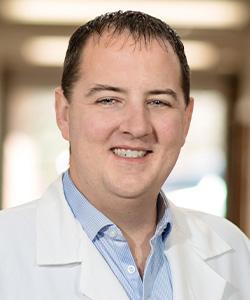Obstructive Sleep Apnea: Symptoms and treatments

As a physician living and practicing in Sedalia, I am privileged to treat many patients in this city and surrounding communities. One of the areas of focus is sleep disorders. The most common sleep disorder I encounter is obstructive sleep apnea (OSA), which is when the airway becomes partially or completely blocked during the night and can lead to pauses in breathing or shallow breathing.
Symptoms may include snoring, gasping/choking during sleep, frequent nighttime urination, excessive daytime sleepiness, morning headaches, dry mouth upon waking and difficulty concentrating.
Left untreated, OSA can cause significant health issues such as high blood pressure, heart attacks, heart failure, abnormal heart rhythms, stroke, weight gain, worsening diabetes and worsening depression and anxiety. It can also lead to an increased chance of falling asleep at the wheel! The good news is that there are many safe and effective treatments for OSA.
The first step is to obtain a sleep study. While many patients have had the gold standard overnight stay in the sleep lab, many times the diagnosis can be obtained by a simple home test worn on your wrist for one night. After the in-lab or home test is complete, treatment options are often discussed.
First, as with many chronic health conditions, lifestyle modification is important. Eating a well-balanced diet with whole foods, high protein and vegetables will help with sleep quality. Minimizing soda, sweet tea, alcohol, unhealthy snacks and processed foods will help with overall weight loss. Doing aerobic exercise for 20 to 30 minutes a day for five days a week can help maintain a healthy body weight
The most common treatment for OSA is Continuous Positive Airway Pressure (CPAP). This is typically a mask that either covers your nose or the nose and mouth that blows air in your mouth to keep your airway from collapsing. This treatment works well if you have a mask that fits well and is comfortable. Relieving this airway obstruction can allow your body to get into deeper, more restful stages of sleep. This can require some troubleshooting and speaking with your physician or medical supply company to try different masks until it is comfortable to wear all night.
Despite trying CPAP, there are some patients who cannot tolerate wearing a mask. In these cases, it is important to speak with your doctor about other treatments. OSA must be treated so it doesn’t impact your health later in life.
For patients who have tried and failed CPAP, an option is an implantable nerve stimulator called the Inspire device. It is placed under the skin and stimulates airway muscles to stay open while you sleep, negating the need for any mask. It is important to mention that insurance companies require patients to try CPAP before more advanced therapies such as this device.
Lastly, the FDA recently approved the weekly injection Zepbound (tirzepatide) specifically for patients with obesity as well as moderate to severe OSA. Zepbound works by increasing insulin secretion, slowing gastric emptying, reducing hunger, improving fat metabolism and increasing satiety. This class of medication was originally used to treat diabetes; however, when it was found to significantly decrease weight, it was studied for this indication alone and found to be safe and effective.
During the studies, the average weight loss was between 15 and 20%. It’s worth a conversation with your doctor if you have moderate to severe OSA and obesity to see if Zepbound is an option for you. As is the case for most treatments, insurance coverage can be a limiting factor. Many commercial health insurance plans still don’t cover Zepbound, yet I remain optimistic this may change in the future.
If you or your loved one has symptoms of obstructive sleep apnea or have been previously diagnosed and are untreated, please ask your doctor for a referral to one of the sleep medicine specialists at Bothwell Regional Health Center.
Dr. Gabriel Anders is a board-certified pulmonologist and treats diseases of the lungs and respiratory tract ranging from asthma, chronic obstructive pulmonary disease (COPD), inflammatory diseases, infections and lung cancer. He also is board certified in sleep medicine, internal medicine and critical care. Dr. Anders joined the Bothwell Regional Health Center medical team in July 2021 and cares for patients at Bothwell Pulmonary Specialists and in the hospital. He and his wife, Joy, live in Sedalia and have three children, with one on the way.
